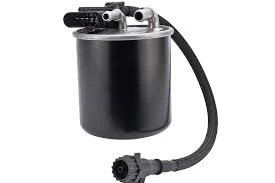Oct . 12, 2024 16:08 Back to list
wholesale fuel filter
Understanding Wholesale Fuel Filters Importance, Types, and Selection
In the world of automotive and machinery maintenance, fuel filters play an essential role in ensuring the efficiency and longevity of vehicles and equipment. For businesses and mechanics operating in the automotive industry, understanding wholesale fuel filters is critical not only for maintaining inventory but also for delivering the best service to clients. This article delves into the importance of fuel filters, the types available, and what to consider when purchasing them wholesale.
What is a Fuel Filter?
A fuel filter is a device that removes contaminants and impurities from fuel before it reaches the engine. These contaminants can include dirt, rust, and even microscopic particles that, if left unchecked, can cause significant engine damage. A clean fuel system is pivotal for optimal engine performance, fuel efficiency, and emissions control. Therefore, a reliable fuel filter is a fundamental component of any vehicle or machinery.
Importance of Fuel Filters
1. Engine Protection The primary function of a fuel filter is to protect the engine from damage caused by impurities in the fuel. Contaminated fuel can lead to severe engine problems, including injector clogging, reduced performance, and increased wear.
2. Fuel Efficiency A clean fuel system allows for a more efficient fuel delivery, which can improve mileage and reduce operational costs over time. This is particularly important for companies that rely on fleet vehicles.
3. Preventative Maintenance Regularly replacing fuel filters is a key part of preventative maintenance. This minimizes the risk of breakdowns, extends the lifespan of engines, and saves money in repairs.
4. Environmental Impact Maintaining clean fuel systems helps in reducing the emission of harmful pollutants, aiding in compliance with environmental regulations and promoting sustainability.
Types of Fuel Filters
Fuel filters come in various types, each designed for specific applications. Understanding these types can aid businesses in making informed purchasing decisions
1. Engine Inline Fuel Filters Found between the fuel tank and fuel injectors, these are the most common type of filters in modern vehicles. They are designed to trap contaminants before fuel enters the engine.
wholesale fuel filter

2. Canister Filters Often located outside the fuel tank, canister filters accommodate larger filtering materials and have a higher capacity for dirt and debris.
3. Fuel Water Separators Particularly important in diesel applications, these filters separate water from fuel, which can be detrimental to engines and can lead to corrosion.
Selecting Wholesale Fuel Filters
When looking to purchase fuel filters wholesale, several factors should be considered
1. Quality and Certification Ensure that the filters meet industry standards and certifications. High-quality filters reduce the risk of engine failure and come with manufacturer warranties.
2. Compatibility Verify that the fuel filters are compatible with the specific vehicle or engine models being serviced. Using the wrong filter can lead to performance issues.
3. Bulk Pricing Many suppliers offer discounts for bulk purchases. Compare prices from multiple wholesalers to find the most competitive rates.
4. Supplier Reputation Partnering with reputable suppliers can ensure that you receive quality products consistently, along with reliable customer service.
5. Lead Time and Delivery Consider the supplier's lead time for shipping and their ability to meet your demands consistently. A reliable supply chain is crucial for maintaining operations.
Conclusion
In conclusion, wholesale fuel filters are a vital component in the automotive industry and should not be overlooked. They protect engines, improve efficiency, and play a crucial role in preventive maintenance. By understanding the types of fuel filters and taking time to select the right ones from reputable suppliers, businesses can enhance their service offerings and ensure the satisfaction of their clients. As vehicles and machinery continue to evolve, staying informed about the latest developments in fuel filtration will remain essential for all automotive professionals.
-
Toyota Corolla Hatchback Cabin Air Filter – High Efficiency & Easy Installation
NewsJul.08,2025
-
Premium Canister Fuel Filter Supplier High Quality Oil Filtration Solutions
NewsJul.08,2025
-
Premium Car Filter Oil Solutions Leading Car Oil Filter Exporter Hyundai Car Oil Filter Exporters
NewsJul.08,2025
-
Buy 17x21x1 Air Filter – Improve Air Quality & HVAC Efficiency Affordable Air & Cabin Air Filter Cost
NewsJul.07,2025
-
High-Performance Filter Element Fuel – Durable, Efficient & Cost-Effective Solutions
NewsJul.07,2025
-
High-Quality Engine Filter and Cabin Filter for Superior Airflow Affordable Cabin and Engine Air Filter Cost
NewsJul.07,2025


